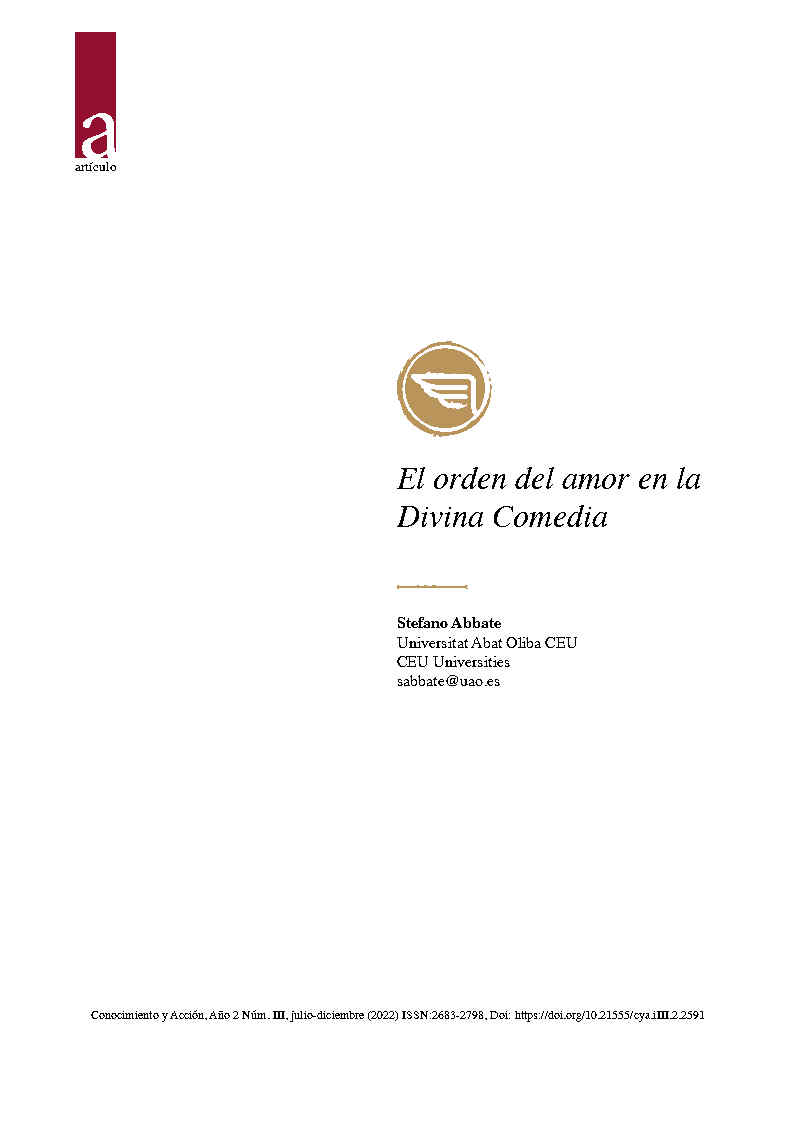
Publicado 04-07-2022
Derechos de autor 2022 Conocimiento y Acción

Esta obra está bajo una licencia internacional Creative Commons Atribución-NoComercial-CompartirIgual 4.0.
Cómo citar
Abbate, S. (2022). El orden del amor en la Divina Comedia. Conocimiento Y Acción, 2(2), 1-10. https://doi.org/10.21555/cya.iIII.2.2591
Resumen
A través de algunas intuiciones de Max Scheler acerca del ordo amoris, se aborda esta cuestión en el pensamiento de Dante Alighieri, especialmente en la Divina Comedia. La obra del poeta florentino se vertebra sobre la ordenación del intelecto y de la voluntad al bien del hombre, así como en la búsqueda del primer amor que mueve esta inclinación del hombre. A través de varios ejemplos tomados de la Divina Comedia se pretende presentar esta cuestión fundamental en la obra mayor de Dante.
Referencias
- Alighieri, Dante Commedia. Opera Completa. Editado por Giorgio Inglese. Roma: Carrocci 2016.
- Alighieri, Dante. Vita nova. Firenze: Einaudi, 1932.
- Agustín de Hipona. La ciudad de Dios. Madrid: BAC: 1958.
- Falzone, Paolo. «Purgatorio XVIII, o del buen uso degli affetti», Bolletino di italianistica 17, n.º 1 (2017), 46-70.
- Inglese, Giorgio. Dante: guida allá Divina Commedia. Roma: Carocci, 2012.
- Nardi, Bruno. Dante e la cultura medievale. Roma: Laterza, 1990.
- Scheler, Max. Ordo amoris. Madrid: Caparrós, 2008.
- Singleton, Charles. An essay on the Vita Nuova. Baltimora: The Johns Hopkins University Press, 1977.
- Tomás de Aquino. Suma Teólogica (V vols.). Madrid: BAC. 2001.
- Tomás de Aquino. Suma contra gentiles (II vols.). Madrid: BAC: 1952-1953.

